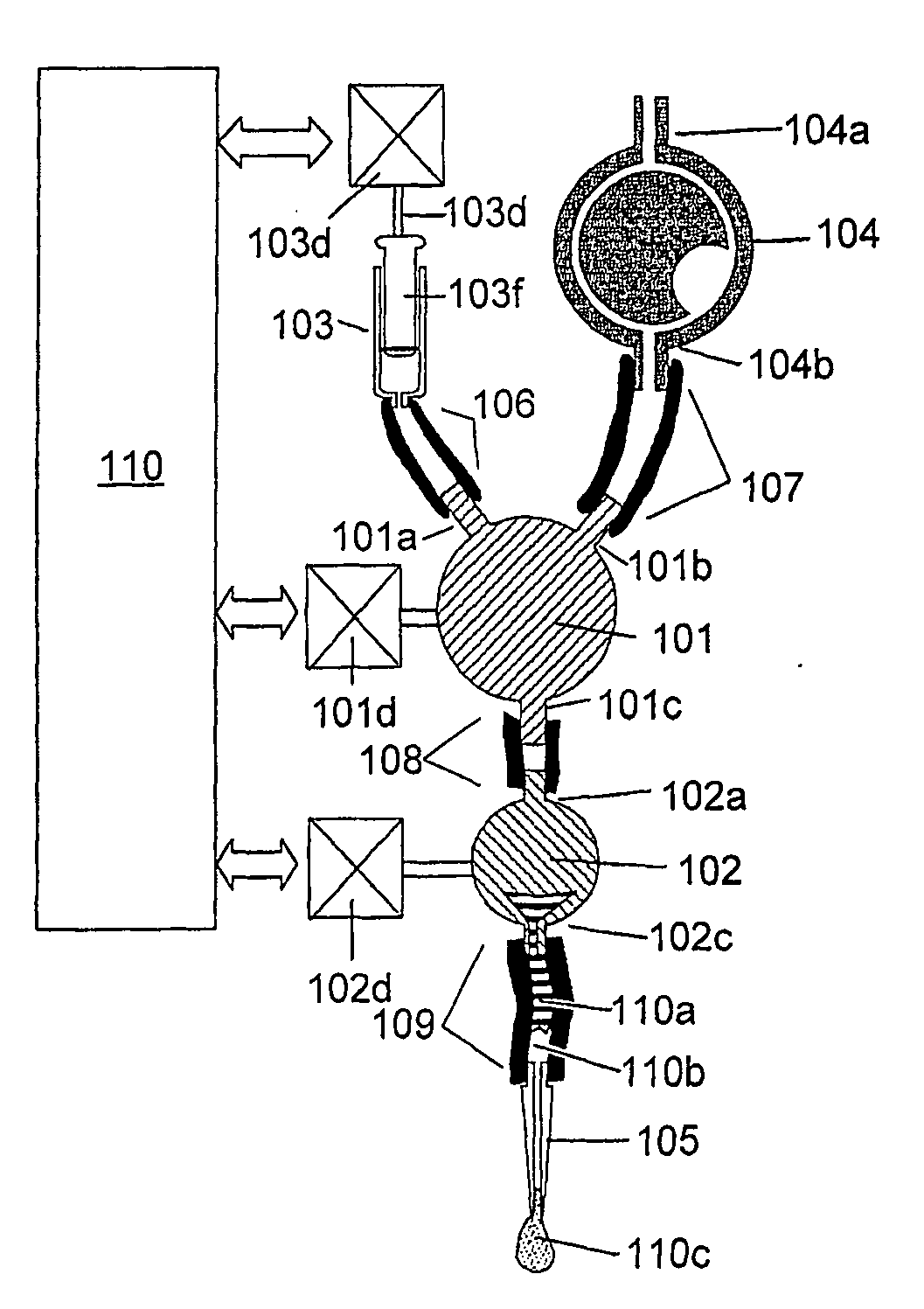Microvalve Controlled Precision Fluid Dispensing Apparatus with a Self-Purging Feature and Method for use
a technology of precision fluid dispensing and micro-valve, which is applied in the field of micro-array fabrication, can solve the problems of difficult control, high cost of oligonucleotide probes, and difficulty in ensuring the accuracy and reproducibility of printed sample fluid volumes, and achieves efficient purging of residual samples, minimize sample wastage, and repeatable dispensing
- Summary
- Abstract
- Description
- Claims
- Application Information
AI Technical Summary
Benefits of technology
Problems solved by technology
Method used
Image
Examples
Embodiment Construction
[0014]Unless defined otherwise, all technical and scientific terms used herein have the same meaning as is commonly understood by one of ordinary skill in the art to which this invention belongs. All patents, applications, published applications and other publications referred to herein are incorporated by reference in their entirety. If a definition set forth in this section is contrary to or otherwise inconsistent with a definition set forth in applications, published applications and other publications that are herein incorporated by reference, the definition set forth in this section prevails over the definition that is incorporated herein by reference.
[0015]As used herein, “a” or “an” means “at least one” or “one or more.”
[0016]FIG. 1 is a schematic diagram of an embodiment of the present invention. Nozzle 105 is used to pick up, hold, and dispense a sample fluid 110c. Nozzle 105 is connected to port 102c of microvalve 102 via coupling 109. Coupling 109 can be tubing or screw a...
PUM
| Property | Measurement | Unit |
|---|---|---|
| pressure | aaaaa | aaaaa |
| volume | aaaaa | aaaaa |
| time interval | aaaaa | aaaaa |
Abstract
Description
Claims
Application Information
 Login to View More
Login to View More - R&D
- Intellectual Property
- Life Sciences
- Materials
- Tech Scout
- Unparalleled Data Quality
- Higher Quality Content
- 60% Fewer Hallucinations
Browse by: Latest US Patents, China's latest patents, Technical Efficacy Thesaurus, Application Domain, Technology Topic, Popular Technical Reports.
© 2025 PatSnap. All rights reserved.Legal|Privacy policy|Modern Slavery Act Transparency Statement|Sitemap|About US| Contact US: help@patsnap.com



